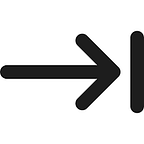FinTech regulations in Nigeria
1 min readDec 5, 2022
- Nigeria is a leader in FinTech innovation in Africa. But, with the rapid rise of technologies, the country must make sure that regulations keep up. So what policy and regulatory frameworks have been put in place to protect customers and make FinTech accessible?
- In Nigeria, the Central Bank of Nigeria (CBN) is the primary financial regulator. The CBN has issued a number of guidelines and regulations, including the Cashless Policy, which encourages the use of electronic payment systems, and the Electronic Payment Channels Regulation, which governs the use of FinTech services.
- The CBN also introduced the Payment System Vision 2020, which is intended to create an efficient and secure payment system in Nigeria. This includes the development of a national payments gateway and improved access to financial services for the unbanked population.
- In addition to the CBN, the Securities and Exchange Commission (SEC) is responsible for regulating the capital market. The SEC has issued guidelines for digital asset exchanges and crowdfunding platforms, as well as regulations for listing digital assets on exchanges.
- Other regulators, such as the Nigerian Communications Commission (NCC) and the National Information Technology Development Agency (NITDA), have also issued guidelines and regulations for the use of FinTech services.
- The regulations in Nigeria are designed to ensure that FinTech services are safe, secure, and accessible to all. With the right policies and regulations, FinTech can continue to thrive in Nigeria and help the country achieve its financial inclusion goals.
